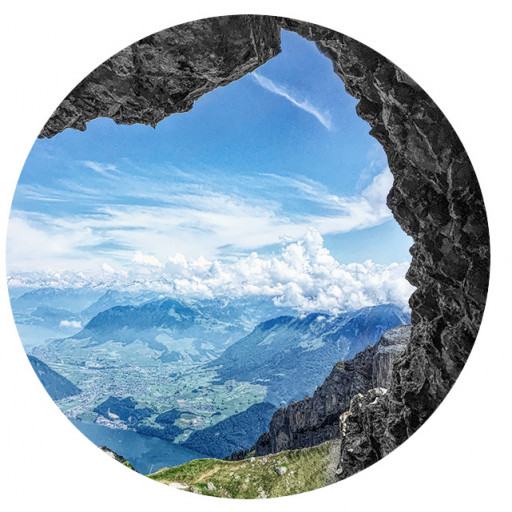Any recommendations for preventing elevation sickness besides the obvious electolytes and hydration.
Any suggestions for increasing my energy?
Lately, I've been sluggish and I want to make sure I am successful. I'm hiking in the Sierras this week need something asap.
Thanks in advance.
Elevation sickness
-
anarchist
- Posts: 75
- Joined: Sat Jan 04, 2014 7:57 am
I have experienced good results with ginkgo biloba. That said, to get it into your system it could take two weeks. I take 120mg daily
-
RichardK

- Posts: 727
- Joined: Sun Sep 30, 2007 12:33 pm
Gingko has worked for us as well. We start taking it about a week ahead. The dose is whatever the label says. As for energy, there is always carbo loading.
-
Tom Kenney

- Posts: 386
- Joined: Sat Sep 29, 2007 7:51 pm
Two aspirin prior to hike works well for me. NOTE: Aspirin, not advil or ibuprofen.
-
RichardK

- Posts: 727
- Joined: Sun Sep 30, 2007 12:33 pm
I agree with Tom. We always took three aspirin before heading up Whitney.
-
bcrowell

- Posts: 228
- Joined: Sun Dec 30, 2012 9:51 am
There is some good scientific evidence described in House and Johnston, Training for the new alpinism, pp. 356, 360, 362.
The main thing is to acclimatize as much as possible. There are a bunch of different physiological mechanisms for acclimatization. Some are rapid, and some take weeks to be complete. A little acclimatization is better than none.
Diamox (acetazolamide) speeds up acclimatization: https://en.wikipedia.org/wiki/Acetazola ... e_sickness It's a prescription drug, and you should try it at home before you try it in the mountains, because it makes a certain percentage of the population violently ill.
Gingko Biloba has been studied scientifically and found to be effective, but not as good as diamox.
House and Johnston say: "A 2012 study found that 600 mg of ibuprofen three times a day starting six hours before ascent resulted in a 26 percent reduction in symptoms..."
There is evidence that caffeine actually helps with AMS. If you normally drink coffee, don't listen to people who tell you not to drink caffeine in the mountains because it will dehydrate you. Caffeine is not dehydrating to people who have developed tolerance for it, and suddenly going cold turkey from caffeine can give you a massive headache -- which can easily be confused with AMS or exacerbate the symptoms of AMS. The time required to taper off a caffeine addiction is also fairly short, on the order of a few days. I usually taper to maybe half my normal coffee consumption in the 3 days before a trip where I know I won't be drinking as much caffeine. House and Johnston reference a 2010 study by Hackett.
Many people who think they have AMS actually don't: https://outdoors.stackexchange.com/a/9653/2169 . Often people just feel lousy because of lack of sleep, unaccustomed exertion, or caffeine withdrawal, and they blame it on AMS.
The main thing is to acclimatize as much as possible. There are a bunch of different physiological mechanisms for acclimatization. Some are rapid, and some take weeks to be complete. A little acclimatization is better than none.
Diamox (acetazolamide) speeds up acclimatization: https://en.wikipedia.org/wiki/Acetazola ... e_sickness It's a prescription drug, and you should try it at home before you try it in the mountains, because it makes a certain percentage of the population violently ill.
Gingko Biloba has been studied scientifically and found to be effective, but not as good as diamox.
House and Johnston say: "A 2012 study found that 600 mg of ibuprofen three times a day starting six hours before ascent resulted in a 26 percent reduction in symptoms..."
There is evidence that caffeine actually helps with AMS. If you normally drink coffee, don't listen to people who tell you not to drink caffeine in the mountains because it will dehydrate you. Caffeine is not dehydrating to people who have developed tolerance for it, and suddenly going cold turkey from caffeine can give you a massive headache -- which can easily be confused with AMS or exacerbate the symptoms of AMS. The time required to taper off a caffeine addiction is also fairly short, on the order of a few days. I usually taper to maybe half my normal coffee consumption in the 3 days before a trip where I know I won't be drinking as much caffeine. House and Johnston reference a 2010 study by Hackett.
Many people who think they have AMS actually don't: https://outdoors.stackexchange.com/a/9653/2169 . Often people just feel lousy because of lack of sleep, unaccustomed exertion, or caffeine withdrawal, and they blame it on AMS.
-
Girl Hiker

- Posts: 1457
- Joined: Fri Apr 04, 2014 7:46 am
Wow! Thanks guys for all the info. Some very interesting facts. Personally, I am a coffee drinker and if I dont drink it I get headaches. I often find myself taking ibuprofen during my hikes when get the headache and rs probably too late. I will try days prior to hiking and I like the Ginka Biloba idea. I'm heading out tomorrow for the Sierra's thanks again for all the advice 
-
David Martin

- Posts: 87
- Joined: Sun Nov 08, 2020 7:08 pm
Late reply and a little off topic, but a hiking buddy who's my age (67 now) told me that many people become less sensitive to altitude sickness when they grow older. In my Himalayan trekking days I always started at lower elevations, took it slow, and had rest days. I drank lots of water and tea and took Diamox at times, which may have helped. I always had some symptoms above 12,000-15,000 feet (shortness of breath, headaches, mild nausea, difficulty sleeping) but just tried to adapt and it was never very bad.
About 5 years ago that buddy and I were in the Indian Himalaya near Tawang. We mostly traveled by car but did a few walks at 10,000 and 13,000 feet. I was amazed that we had no symptoms and felt just fine, though we'd hardly acclimatized at all. So maybe it's true that AMS can moderate in our senior years.
About 5 years ago that buddy and I were in the Indian Himalaya near Tawang. We mostly traveled by car but did a few walks at 10,000 and 13,000 feet. I was amazed that we had no symptoms and felt just fine, though we'd hardly acclimatized at all. So maybe it's true that AMS can moderate in our senior years.
-
Girl Hiker

- Posts: 1457
- Joined: Fri Apr 04, 2014 7:46 am
Update:
I forgot about my previous request on advice for elevation sickness until David recently replied. I had been training for Whitney last year before Covid but didn't get the chance to summit because of the fires and trail closures. Anyways, I decided to try Diamox. I heard about it but was reluctant to try it because for one you need a RX. I took some during my training hikes and it worked wonders. I never felt nauseated or got headaches. Of course hydration and eating right helped. But even though I did the right things before I tried Diamox, I still felt sick. As for the Gingko Biloba it never worked. I'm so relieved that I finally found the right solution to my AMS.
Thanks again for all the advice.
I forgot about my previous request on advice for elevation sickness until David recently replied. I had been training for Whitney last year before Covid but didn't get the chance to summit because of the fires and trail closures. Anyways, I decided to try Diamox. I heard about it but was reluctant to try it because for one you need a RX. I took some during my training hikes and it worked wonders. I never felt nauseated or got headaches. Of course hydration and eating right helped. But even though I did the right things before I tried Diamox, I still felt sick. As for the Gingko Biloba it never worked. I'm so relieved that I finally found the right solution to my AMS.
Thanks again for all the advice.
